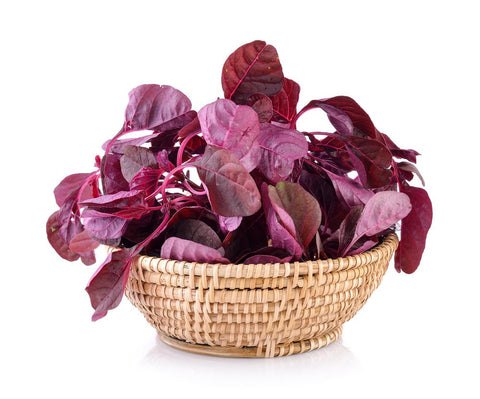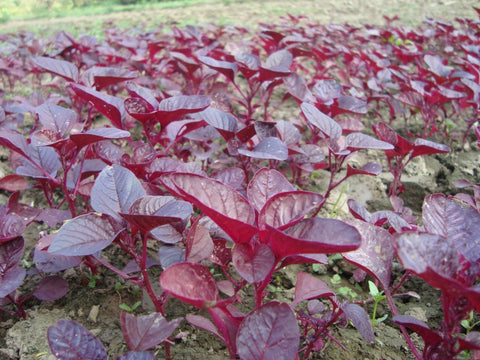The Very Best Nitric Oxide Supplements
Nitric Oxide (NO) Supplements are a great way to boost NO levels naturally. Nitric Oxide is a signaling molecule with critical physiological functions in supporting vascular relaxation, neurotransmission, and immune response. The enhancement of Nitric Oxide levels has demonstrated significant benefits, including improved cardiovascular health and optimized athletic performance through supporting healthy blood flow and oxygen delivery to cells.
While various supplements claim to boost Nitric Oxide, this article focuses on food-based Nitric Oxide supplements. These offer several advantages over synthetic forms, including fewer adverse effects and a wider range of beneficial nutrients. For maximum efficacy, food-based Nitric Oxide supplements require oral consumption. This is due to the vital role played by tongue-based bacteria in Nitric Oxide activation.
In the following sections, we will delve into the best Nitric Oxide supplements that are food-based, supported by scientific data, and optimized for oral consumption to maximize benefits.
Finding the Best Nitric Oxide Supplements – The Underestimated Role of Tongue-Based Bacteria
Oral bacteria are pivotal in converting dietary nitrates to nitrites, the first step in effective Nitric Oxide production. This biochemical transformation initiates in the mouth, specifically facilitated by bacteria on the tongue, and proceeds through the stomach and circulatory system. The absence of this bacterial action compromises the efficacy of a Nitric Oxide supplement, making functional food-based options often an effective option.
In contrast, supplements ingested in pill form miss this critical bacterial engagement. Such pills are digested in the stomach, bypassing the initial bacterial conversion in the oral cavity. Therefore, for achieving optimal Nitric Oxide levels, food-based supplements are most effective when consumed orally.
#1: Red Spinach
Red Spinach is rich in essential nutrients, including vitamins A, C, and K, as well as minerals like iron and magnesium. But what sets it apart in the context of Nitric Oxide production is its high nitrate content. Nitrates are the precursors needed for effective Nitric Oxide synthesis.
Several studies have highlighted the Nitric Oxide-boosting capabilities of foods rich in nitrates, such as Red Spinach. For instance, a peer-reviewed study published in the journal Free Radical Biology and Medicine confirmed that dietary nitrates are effective in enhancing Nitric Oxide production, validating the efficacy of nitrate-rich foods as Nitric Oxide supplements.
Research has shown that high nitrate red spinach has a nitrate content that is approximately five times higher than that of beet juice. As a nitric oxide supplement, red spinach has been shown to increase endurance, recovery, and overall wellness in people of all ages, with a focus on athletes and aging individuals.
Given that oral consumption is crucial for nitrate conversion, how you consume Red Spinach matters:
- Smoothies: Blending Red Spinach in a smoothie allows for comprehensive nutrient absorption while keeping the essential nitrates intact.
- Salads: Consuming it raw in a salad also preserves the nitrates but might involve less intake compared to a concentrated smoothie.
- Juices: Freshly squeezed Red Spinach juice can provide a quick nitrate boost but may lack some fiber and other nutrients present in the whole leaves.
#2: Beets
Beets are nutritionally dense, providing a range of vitamins and minerals, such as vitamin C, potassium, and folate. The most pertinent nutrient for Nitric Oxide production, however, is their high nitrate content. These nitrates are key precursors for Nitric Oxide synthesis, supporting healthy blood flow and oxygenation in tissues.
Several studies affirm the effectiveness of beets in enhancing Nitric Oxide levels. One well-cited study published in the Journal of Sports Nutrition found that consumption of beetroot juice significantly increased Nitric Oxide levels and improved exercise efficiency in a controlled trial. Although beets are effective, they generally contain slightly lower nitrate levels compared to red spinach, but still making them a great choice. Here’s why.
The efficacy of beet juice may be amplified when mixed with other nitrate-rich or synergistic foods like tart cherries and oranges. Importantly, the body's ability to convert these dietary nitrates into Nitric Oxide isn't one-size-fits-all; it can be affected by a range of factors. These include individual differences in gut microbiota and the presence of nitrate-reducing enzymes, as well as the methods used to process and prepare the food.
The method of consumption significantly influences the efficacy of the nitrates. Here are some ideas:
- Beet Juice: Juicing beets provides a concentrated source of nitrates, making it an efficient method for boosting Nitric Oxide levels.
- Cooked Beets: While still beneficial, cooking can slightly reduce the nitrate content. If you prefer cooked beets, steaming is preferable to boiling to preserve nutrients.
- Raw Beets: Consuming beets in their raw form retains all the nutrients but may be less palatable for some.
Excessive consumption of beets could lead to beeturia (pink or red urine) and may affect mineral balance due to the high oxalate content. Individuals with kidney issues or those taking certain medications should consult a healthcare provider before incorporating beets into their diet extensively.
#3: Arugula
Arugula contains a range of important nutrients, such as vitamins A and K, calcium, and antioxidants. Notably, it is also a potent source of dietary nitrates, which are essential for effective Nitric Oxide production. Its nitrate content makes it an attractive option for those seeking to improve vascular health and athletic performance.
According to a 2018 study, arugula juices have health-beneficial compounds such as nitrate and phenolics. By drinking arugula juice everyday, or consuming the whole plant, individuals can enjoy its diverse array of health-promoting properties.
While arugula is commonly consumed in salads, its peppery flavor allows for diverse culinary uses:
- Pesto: Replacing basil with arugula in pesto offers a nitrate-rich alternative.
- Smoothies: Incorporating arugula into fruit or vegetable smoothies provides a nutritionally dense, Nitric Oxide-boosting beverage.
- Pizza Topping: Fresh arugula can be added to pizzas after baking for a nitrate boost.
Despite its benefits, arugula's high vitamin K content could interfere with anticoagulant medications. Also, overconsumption might lead to excessive nitrate intake, which may not be suitable for certain individuals with pre-existing health conditions.
#4: Watermelon
Watermelon is known for its hydrating properties, vitamins A and C, and antioxidants. Most importantly for Nitric Oxide production, it contains a significant amount of L-citrulline, an amino acid that is converted into Nitric Oxide within the body.
Studies indicate that L-citrulline in watermelon effectively boosts Nitric Oxide levels.
However, it generally requires a larger volume of watermelon, especially the rind, to achieve the nitrate levels one might get from red spinach or beets.
Here are some ideas of how to incorporate watermelon into your day:
- Fresh Chunks: Consuming watermelon in its natural form provides not just L-citrulline but also a range of other nutrients.
- Watermelon Juice: A concentrated source of L-citrulline, though it lacks the fiber present in the whole fruit.
- Blended in Smoothies: Incorporating watermelon rind in smoothies offers a palatable way to consume the fruit while maintaining its nutrient integrity.
#5: Pomegranate
Pomegranate is rich in antioxidants, vitamins, and minerals, with a particular emphasis on polyphenols and anthocyanins. While not as high in nitrates as red spinach or beets, it still contributes to Nitric Oxide production by enhancing the activity of the enzyme that converts available nitrates to Nitric Oxide. Research also highlights that pomegranate can improve endothelial function, indirectly supporting Nitric Oxide levels in the body.
Here are some ideas on how to consume pomegranate:
- Fresh: Consuming the seeds provides the most comprehensive nutritional benefits.
- Juice: Pomegranate juice concentrates the fruit's nutrients but is often high in sugar.
- Supplements: While convenient, they miss the initial conversion process facilitated by oral bacteria.
A New Paradigm: The Best Nitric Oxide Supplements as Functional Foods
In our deep-dive into the landscape of Nitric Oxide supplements, it becomes evident that functional foods—foods that offer health benefits beyond basic nutrition—emerge as the top choices. Red spinach, beets, and arugula not only come packed with essential nutrients but also serve as powerful Nitric Oxide boosters, lending credence to the concept of food as medicine.
Often overlooked, tongue-based bacteria serve as silent facilitators in the conversion of dietary nitrates to Nitric Oxide. Their role elevates the status of food-based Nitric Oxide supplements, steering us away from the pill-based alternatives that fail to engage these microbial agents in the mouth. Consider adding a whole food nitric oxide supplement into your diet to boost NO levels naturally!
References
Corleto KA, Singh J, Jayaprakasha GK, Patil BS. Storage Stability of Dietary Nitrate and Phenolic Compounds in Beetroot (Beta vulgaris) and Arugula (Eruca sativa) Juices. J Food Sci. 2018 May;83(5):1237-1248. doi: 10.1111/1750-3841.14129. Epub 2018 Apr 16. PMID: 29660828.
Figueroa A, Wong A, Jaime SJ, Gonzales JU. Influence of L-citrulline and watermelon supplementation on vascular function and exercise performance. Curr Opin Clin Nutr Metab Care. 2017 Jan;20(1):92-98. doi: 10.1097/MCO.0000000000000340. PMID: 27749691.
Vučić V, Grabež M, Trchounian A, Arsić A. Composition and Potential Health Benefits of Pomegranate: A Review. Curr Pharm Des. 2019;25(16):1817-1827. doi: 10.2174/1381612825666190708183941. PMID: 31298147.
Coggan, A.R., Baranauskas, M.N., Hinrichs, R.J. et al. Effect of dietary nitrate on human muscle power: a systematic review and individual participant data meta-analysis. J Int Soc Sports Nutr 18, 66 (2021). https://doi.org/10.1186/s12970-021-00463-z
Kyle Raubenheimer, Danica Hickey, Michael Leveritt, Robert Fassett, Joaquin Ortiz de Zevallos Munoz, Jason D. Allen, David Briskey, Tony J. Parker, Graham Kerr, Jonathan M. Peake, Natalie M. Pecheniuk, Oliver Neubauer, 2023,Pages 51-52, ISSN 0891-5849,
https://doi.org/10.1016/j.freeradbiomed.2023.03.209.





Comments (0)
There are no comments for this article. Be the first one to leave a message!